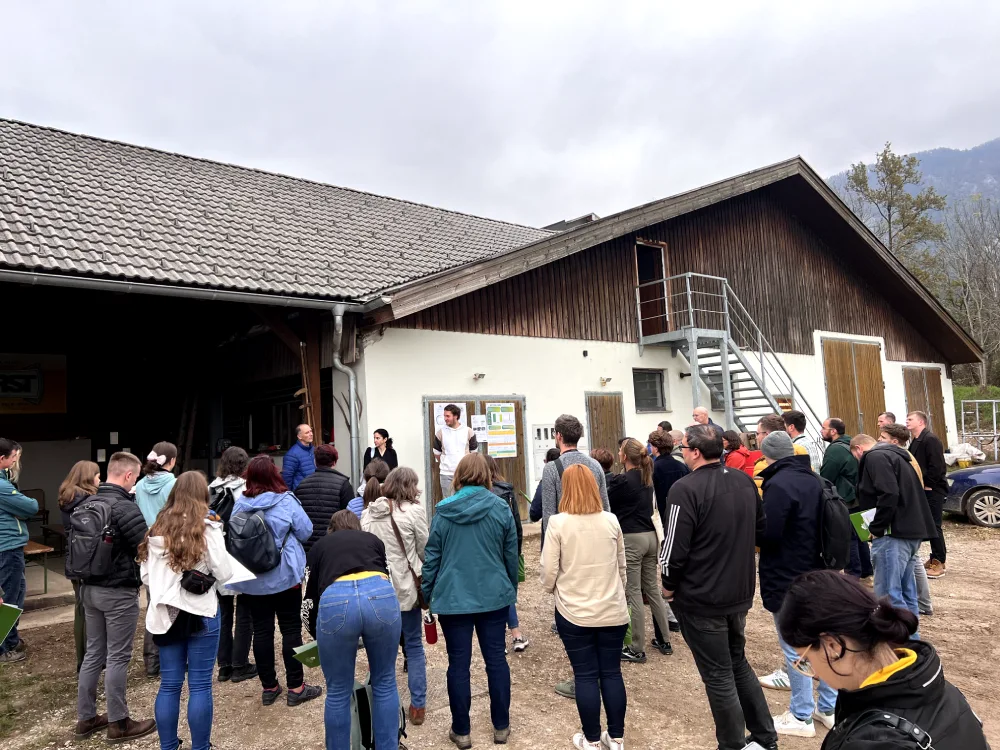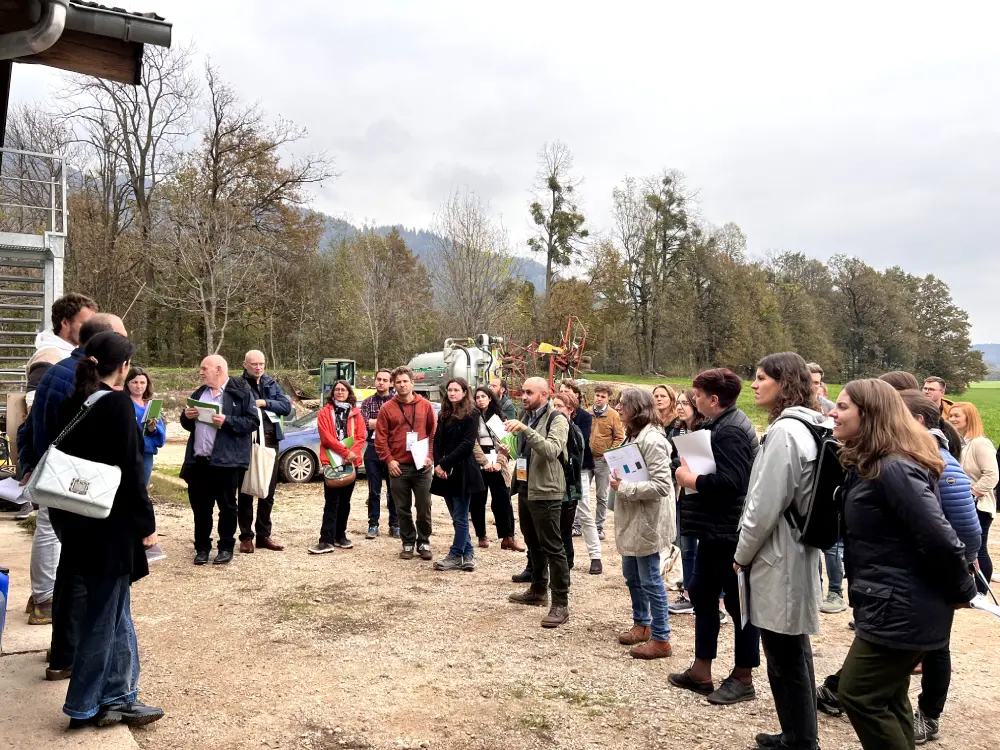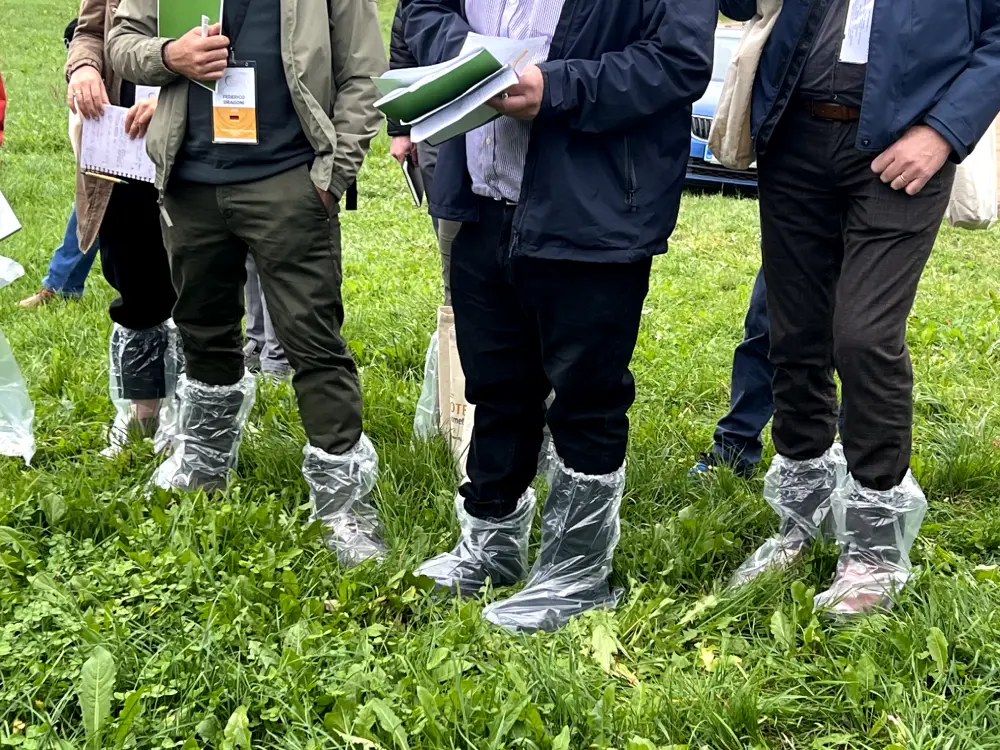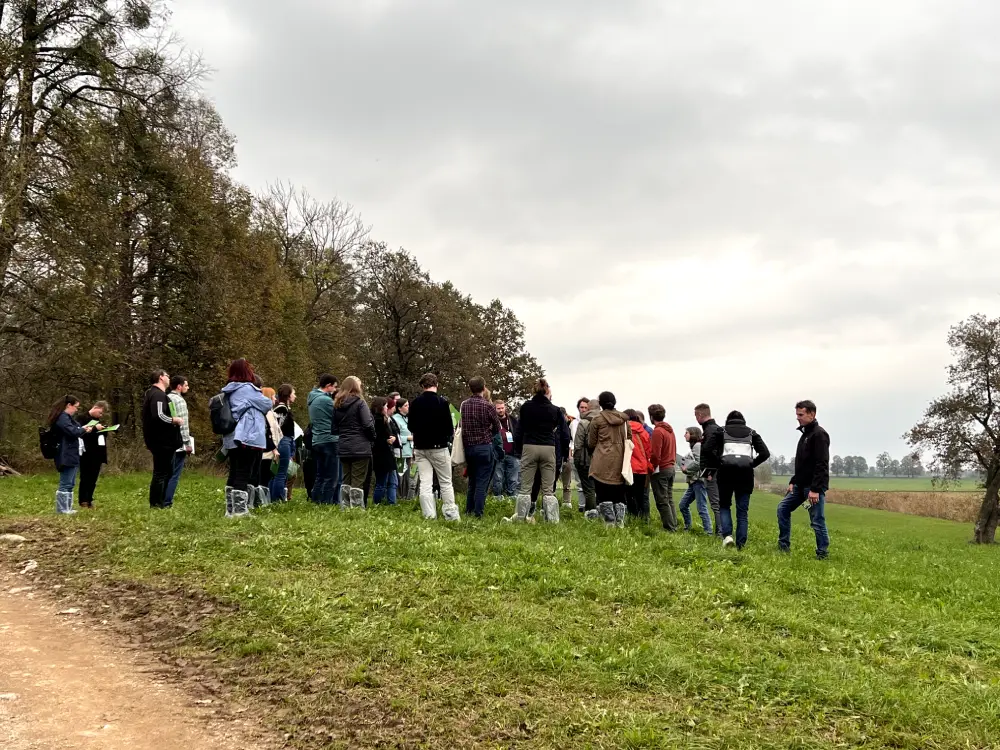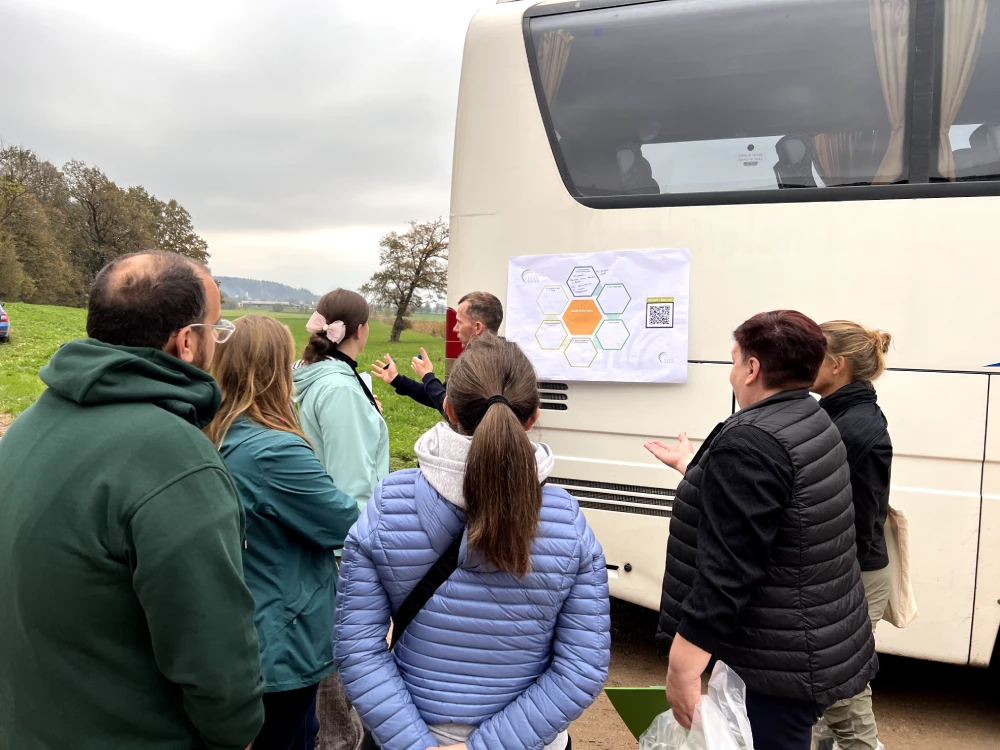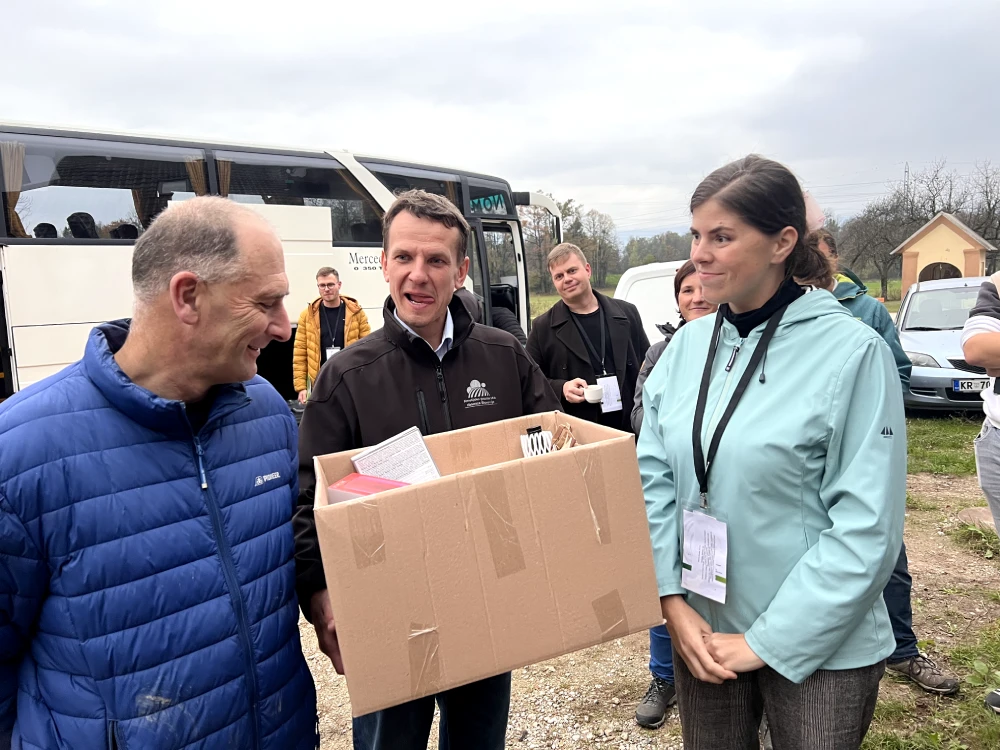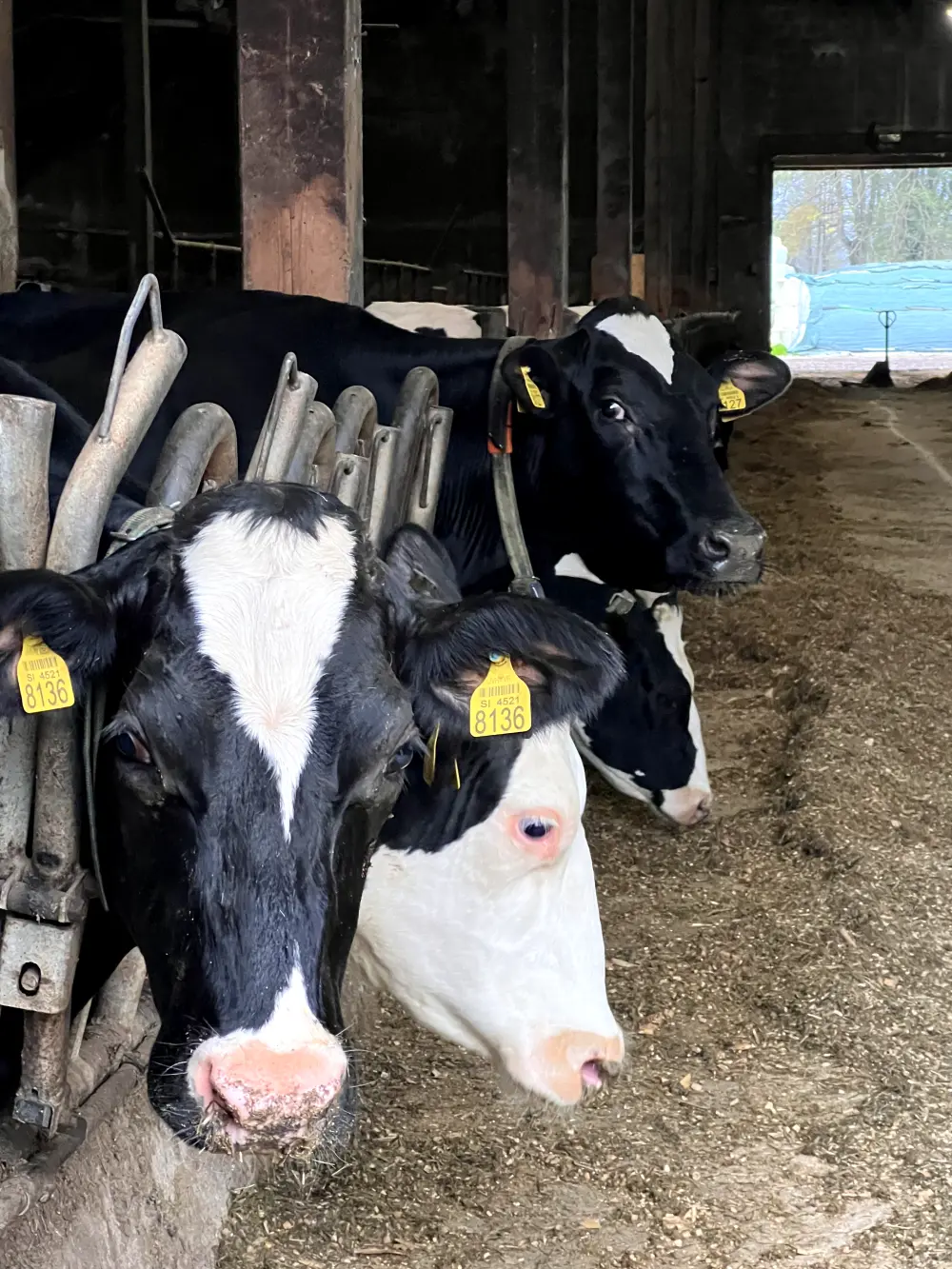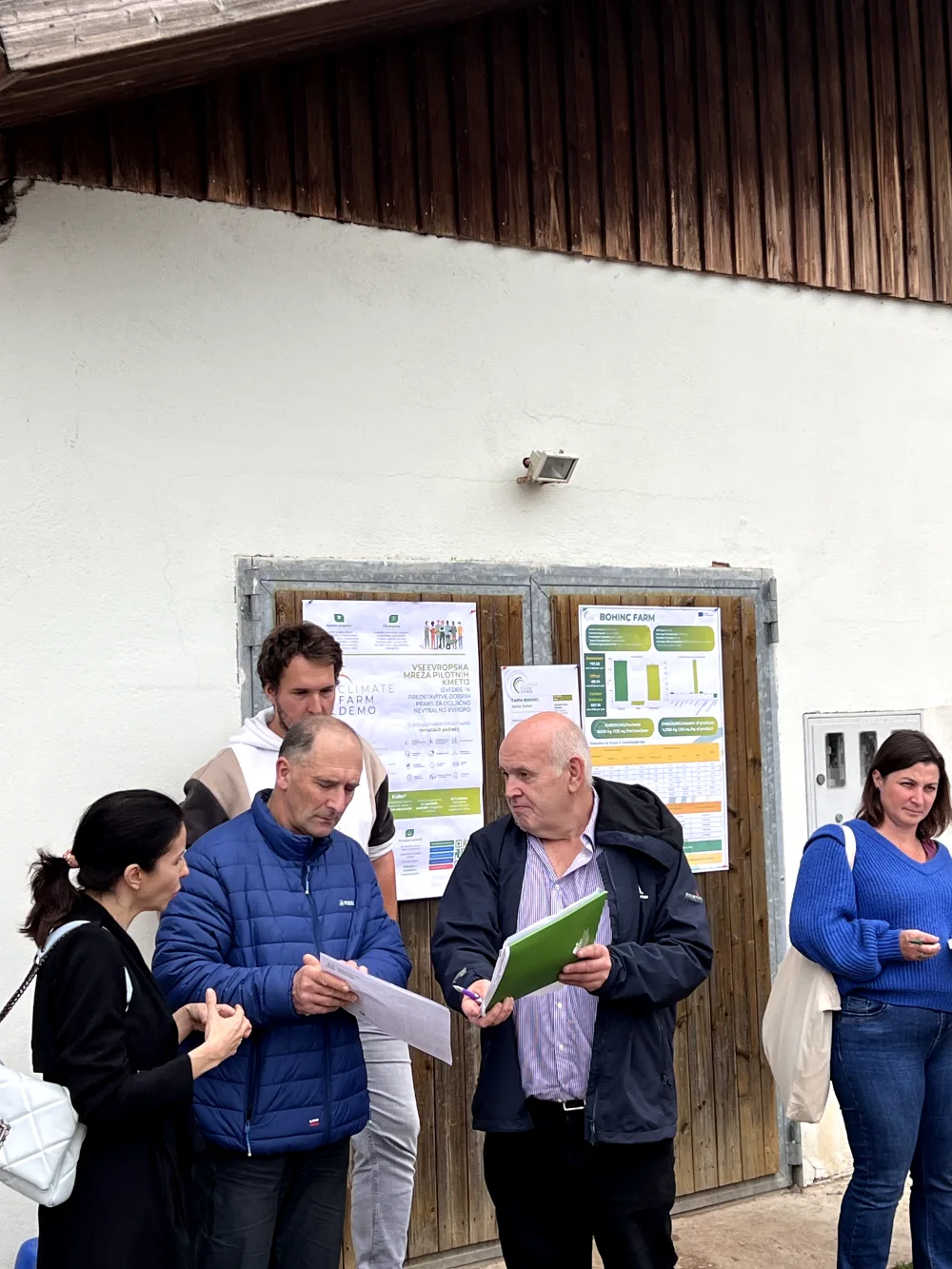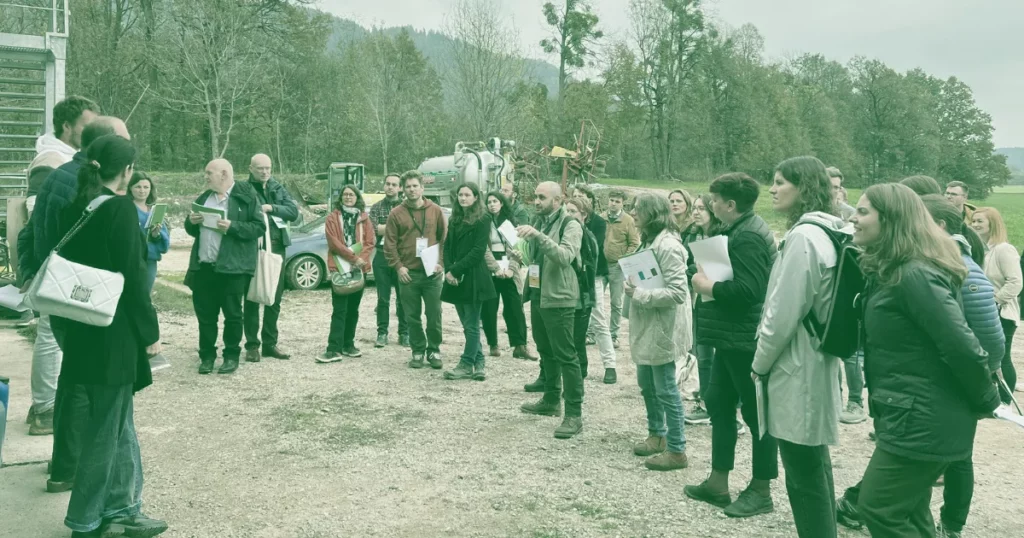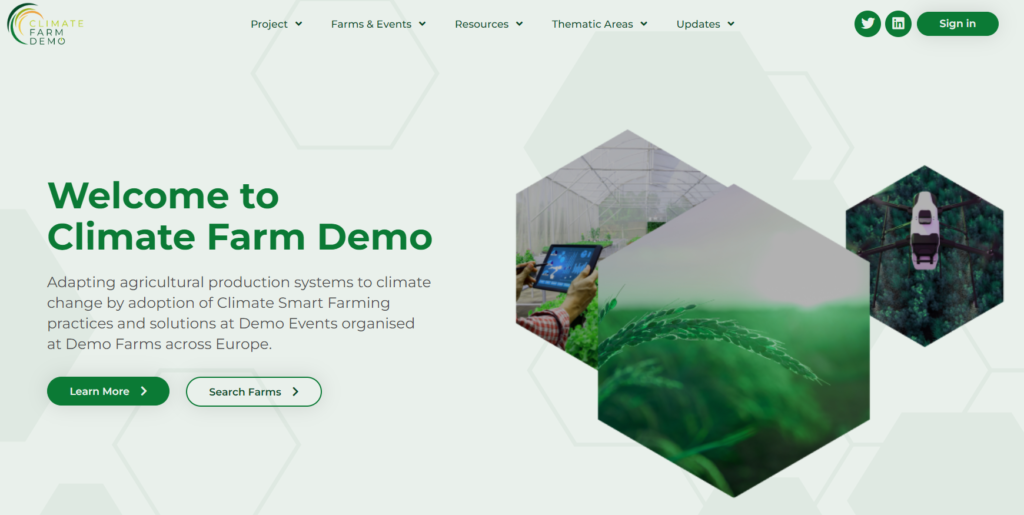Each visit involved distributing observation cards to all demonstration visitors, which covered key topics: 1) the demonstration of climate issues, 2) use of farm data, 3) use of props, 4) recommendations to the host farmer, and 5) recommendations to the Climate Farm Advisors (CFA). Visitors individually observed and responded to these questions as they toured the farms. As a token of appreciation for their hospitality, participants brought small gifts from across Europe to thank the farmers for hosting them.
Kmetija Bohinc, located in the Gorenjska region of Slovenia, is a family-run farm dedicated to sustainable dairy production. The farm spans 60 hectares, consisting of 40 hectares of permanent grassland and 20 hectares of arable fields. Under the leadership of Janez Šebat, who took over the farm in 1999, Kmetija Bohinc has grown from 40 to 60 hectares and expanded its dairy herd from 45 to 65 cows. The farm now produces 630,000 kilograms of milk annually, with an average yield of 9,950 kilograms per cow. Over the last five years, the farm has steadily improved its productivity, increasing milk production from 8,000 to 10,000 kilograms per cow.
The Bohinc family prioritizes animal welfare, housing milking cows indoors year-round while allowing heifers to graze outdoors as much as possible depending on weather conditions. However, the farm faces significant climate risks, including heat stress and increased rainfall, which have impacted both crop yields and animal production. In the past five years, Janez has experienced yield losses of up to 50% due to severe droughts, while excess water has affected two hectares of land.
To tackle these challenges, Kmetija Bohinc has implemented several measures under the Climate Farm Demo project. These include precision agriculture with GPS-guided spreading systems, mechanical ventilation in barns to improve animal welfare during heat waves, nitrification inhibitors to reduce nitrogen emissions, and soil additives to enhance soil fertility and plant resilience. Janez explained that producing high-quality silage is particularly difficult due to variable weather conditions, and that their first cut silage in 2023 was harvested on April 29th with only 18% protein.
The farm’s greenhouse gas (GHG) emissions are currently 12,378 kg CO2 equivalent per hectare and 1.1635 kg CO2 equivalent per kilogram of milk produced. Janez is working to reduce these emissions by improving soil organic matter, increasing protein content in fodder, and enhancing feed quality. The farm also employs advanced breeding practices, including the use of sexed semen on heifers and aiming to calf them at 25 months to improve productivity.
Looking ahead, Kmetija Bohinc plans to further innovate with projects to expand storage facilities for improved fodder quality, increase renewable energy use, and enhance animal welfare practices. Janez Šebat emphasized, “The results of our measures can be seen in the quality of the feed, the health of the animals, and, of course, in the products themselves.” The farm’s goal is to be as self-sufficient as possible while adapting to climate change through sustainable practices like cover cropping and storing forage for year-round feed security.
The feedback and reflection session proved to be an invaluable part of the farm visits, allowing both the farmer and Climate Farm Advisor (CFA) to reflect on the demonstration and enhance the results. This session facilitated a constructive exchange of ideas, enabling farmers to receive insightful recommendations for improvements, while also providing CFAs with feedback on how to optimize future farm demonstration events.
Following the reflection session, several key recommendations were made for Kmetija Bohinc. These included improvements to barn ventilation, the addition of infrastructure for heifer grazing, better management of milk production, and closer monitoring of water quality and methane emissions. These suggestions aim to refine the farm’s practices and further enhance its sustainability and productivity.
In addition, participants provided valuable feedback to the Climate Farm Advisor, highlighting areas for improvement in farm demonstration events. They emphasized the need for more precise information during the demonstrations, better time management to ensure smooth transitions between stops, and more active engagement with participants to maintain focus and facilitate deeper discussions. This feedback is crucial for both the farmer and the Climate Farm Advisor to continually improve their approaches, ensuring that future farm demonstrations are even more effective and impactful.
A big thank you to Kmetija Bohinc for hosting us and for being an integral part of the Climate Farm Demo network of farms. We’re grateful for your commitment to sustainability and your valuable contributions to the project.
